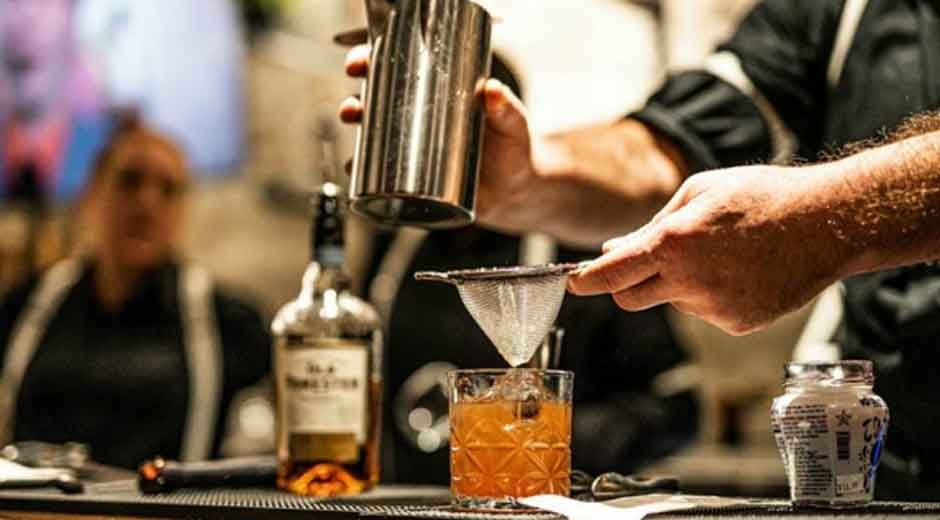When I first started bartending, I thought the job was basically mixing drinks and being social. But it’s a bit more complex. Turns out, this career really is a full-contact blend of customer psychology, multitasking, flavor science and improv comedy.
If you’re eyeing a place behind the bar and checking out bartender hiring in Phoenix, know this: shaking a solid margarita is just the entry ticket. The real skills that keep you in the game are not always the ones you learn from cocktail recipe flashcards.
Let’s get into what really matters if you want to do more than just survive behind the bar.
1. Memory Like a Steel Trap
I used to think my memory was fine until I had to remember eight drink orders, three customer names, two tabs, and who likes their whiskey with a giant ice cube and not “those peasant rocks.”
Bartending requires a weird kind of mental agility. You need to remember regulars’ go-to orders, recall drink recipes under pressure, and track tabs across a crowded bar. At the same time, you’re juggling verbal orders, ticket printers and maybe even a POS that still thinks it’s 2006.
Plus, you have to do it all with a smile, like none of this is melting your brain. I suggest reading up on mnemonic devices and keeping a backup pad for those 2 a.m. brain farts.
2. Situational Awareness
Bars are dynamic environments. Someone’s ordering, someone is spilling, and someone else is trying to flirt using only eye contact and excessive tipping. You need to know what’s happening behind you, in front of you and at the door.
Being attuned to your surroundings like a ninja helps you predict rushes before they hit, spot guests who are about to get annoyed and time your prep and pours better. Once you develop that sixth sense for chaos, you’ll feel indestructible.
3. Communication
Whether you’re calling out “86 mint” to the barback or explaining to a tourist why a Long Island iced tea isn’t actually tea, clarity matters.
The best bartenders decode vague orders (“something strong but sweet but also sour?”) into real drinks and communicate needs to coworkers fast. If you’re too quiet, your orders get missed. If you talk too much, you slow down service. Find the balance.
And don’t underestimate how far a simple “Thanks for your patience” can go during a busy shift. It diffuses tension like magic.
4. Speed and Efficiency
There’s no glory in being the fastest if your drinks taste like regret. But taking forever to build a Negroni while a line forms is just as bad.
Efficiency means having your station set up before the doors open, grouping similar orders together and knowing which drinks to batch when appropriate. Limit unnecessary movement; every step counts during rush hour.
You’ll step on your own feet for a while, but eventually, it’ll feel like a well-choreographed dance routine.
5. Thick Skin and Emotional Intelligence
Some guests are awesome, others less so. You’ll get hit on, yelled at, condescended to and occasionally told you made someone’s night all within the same hour. If you want to stay sane, develop these two skills in tandem:
- Emotional intelligence: Recognize when someone’s upset and de-escalate. Know when to joke, when to apologize, and when to walk away.
- Thick skin: Don’t take every rude customer personally. Most of the time, it’s not about you. It’s about them, their day, and their baggage. You’re just in the line of fire.
You’re not a punching bag, but you’re also not there to win every argument. Grace under pressure is what separates amateurs from pros.
6. Creativity
Yes, it’s fun to smoke a cocktail and balance a flaming cinnamon stick on top, but the real creativity comes from more than visual flair. It’s about suggesting off-menu drinks based on a guest’s vague cravings and creating low-ABV options for someone who wants to “have one, but not feel it.”
Some of the best drink ideas I’ve had came from guests asking me to mix something that tastes like apple pie but isn’t too sweet and other odd requests like that. Think of those as your moments to shine.
7. Natural Salesmanship
Good bartenders upsell without sounding greedy.
Suggest the top-shelf tequila when you sense the guest might be in the mood to splurge, offer a snack menu when you see someone start to fade, and recommend a flight instead of a single pour for that whiskey nerd who’s eyeing the shelf.
If you learn how to frame suggestions as helpful rather than transactional, your tips (and your bar’s profits) go up.
8. Stamina
It’s not just physical stamina, though your feet, back, and shoulders will tell you otherwise after back-to-back doubles. It’s mental and emotional stamina, too. You still need to remember the last call protocol and offer a genuine “Have a great night” to that last straggler after a 10-hour shift.
Hydrate, stretch, take breaks when you can, and don’t underestimate the power of good shoes.
What Makes a Bartender Successful?
Not everyone who can pour a drink is cut out for this work. But if you’ve got curiosity, humility, hustle and that bartender swagger, you’re on the right path. No one walks into their first bar shift knowing it all. You learn by messing up, getting better, and keeping your cool when someone orders five different martinis, each with a little twist on the classic.










